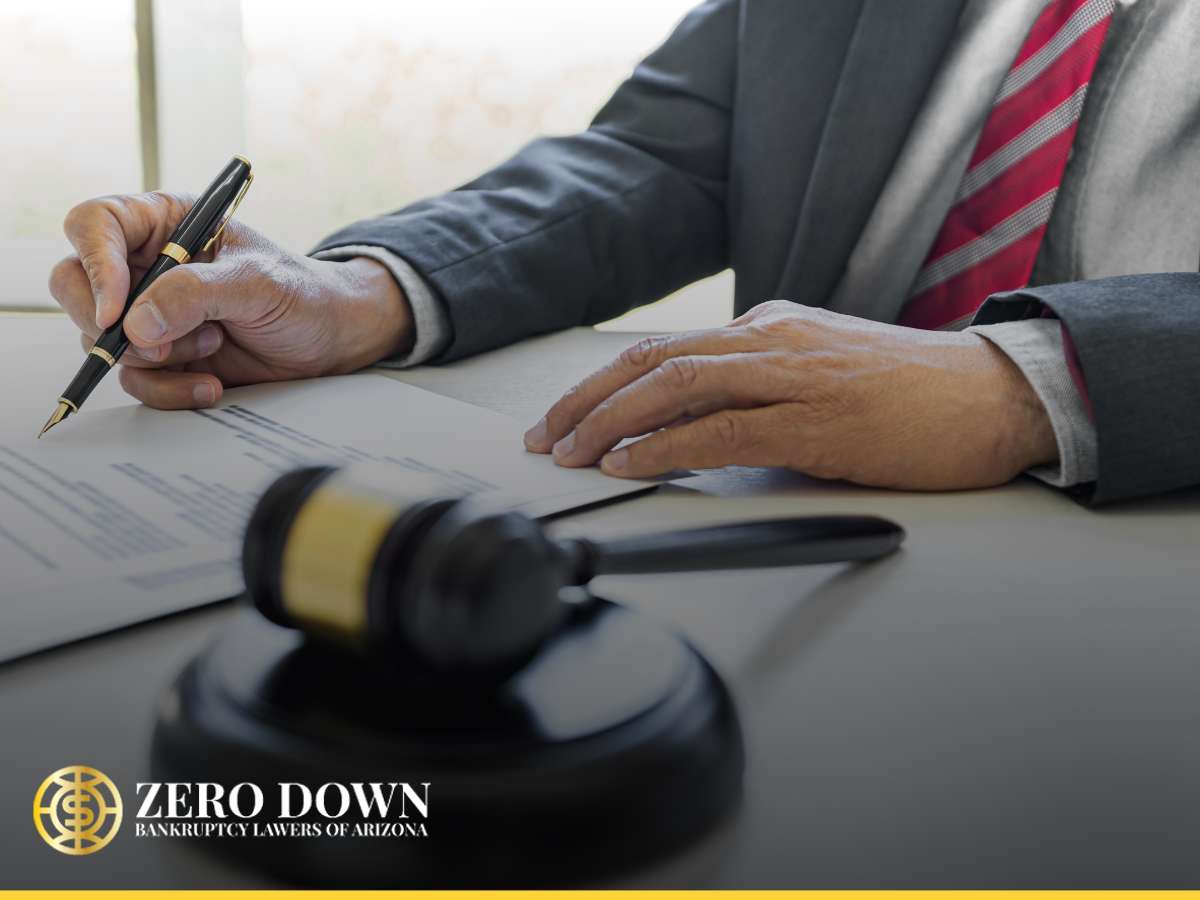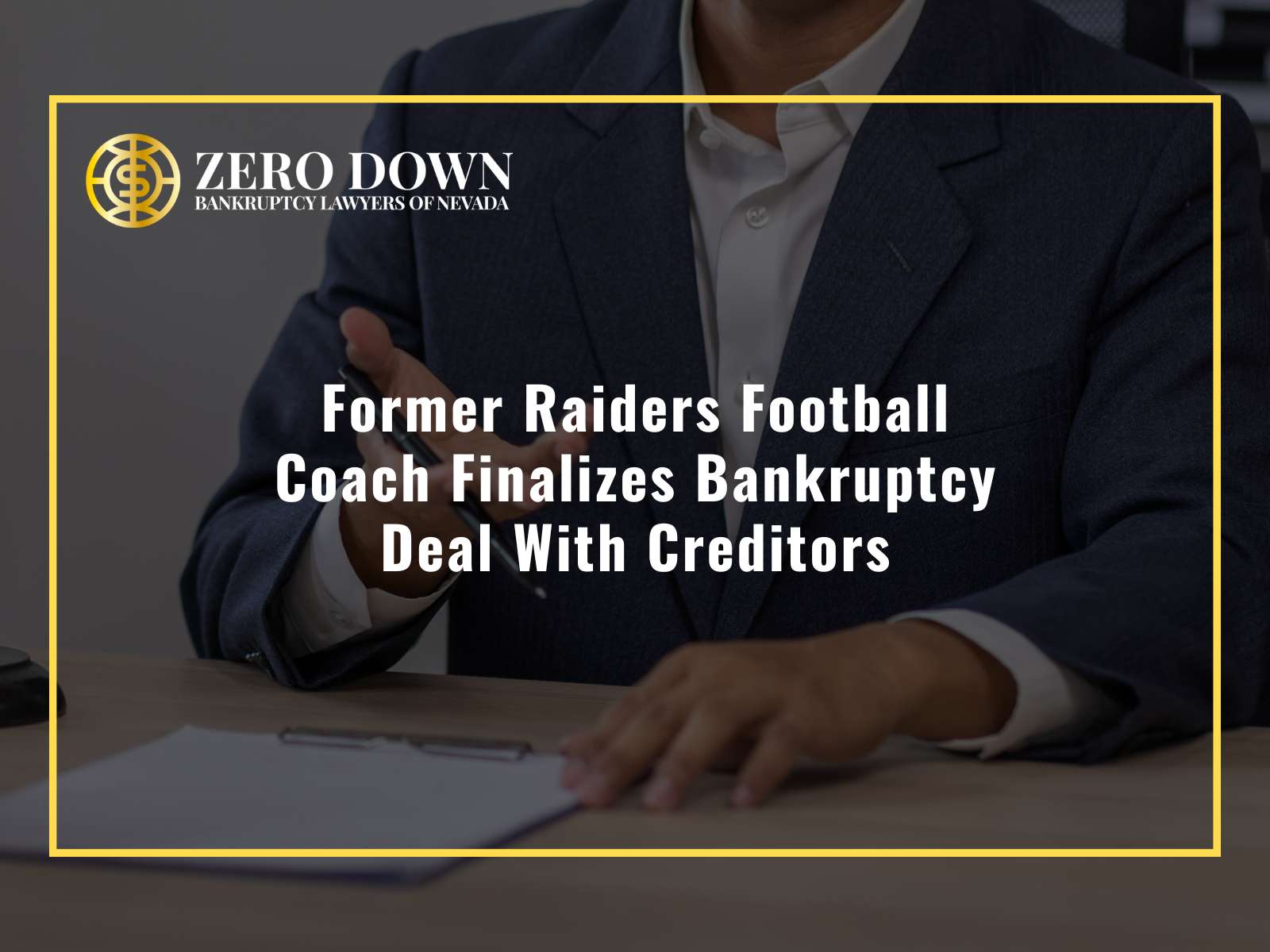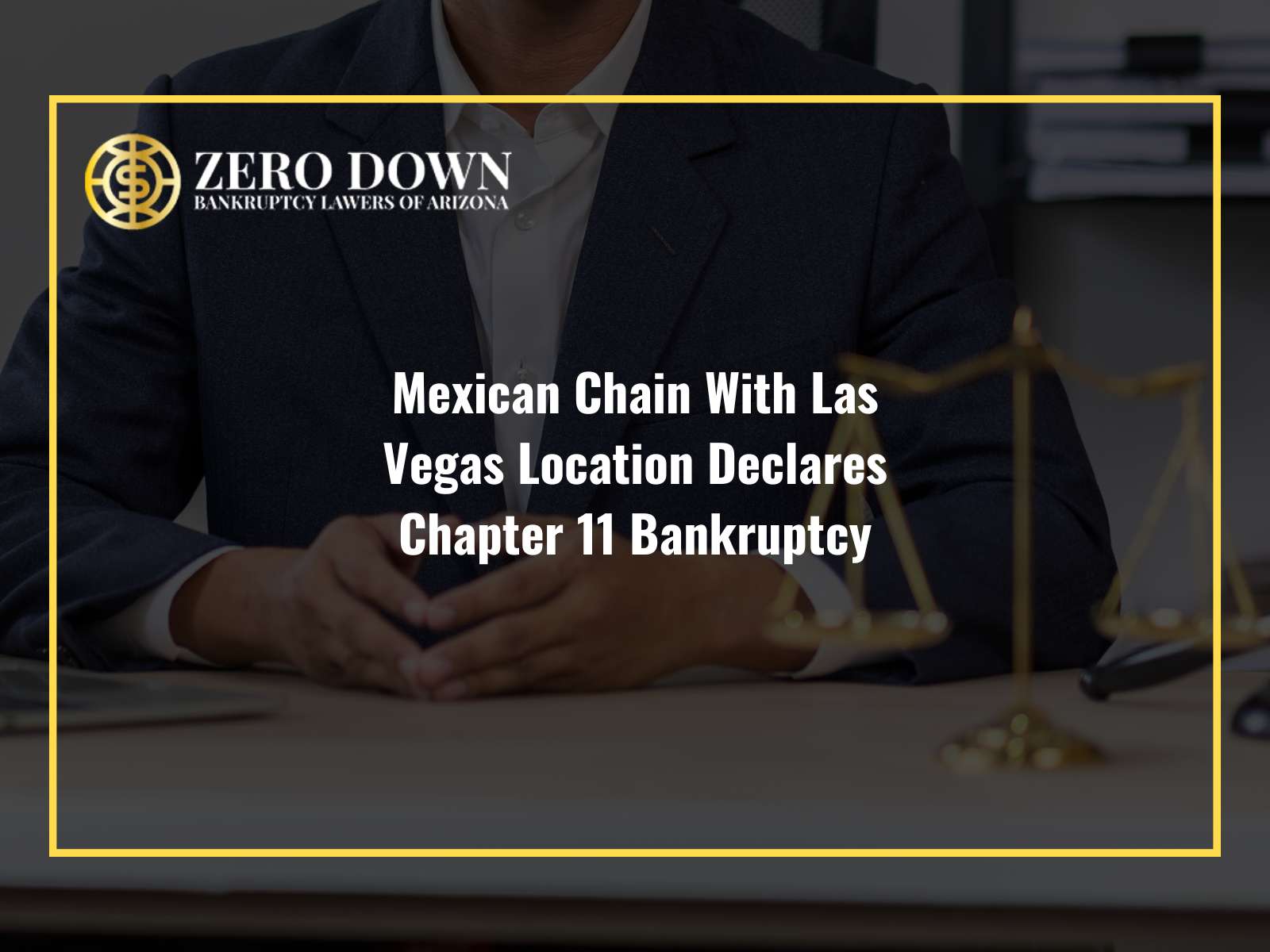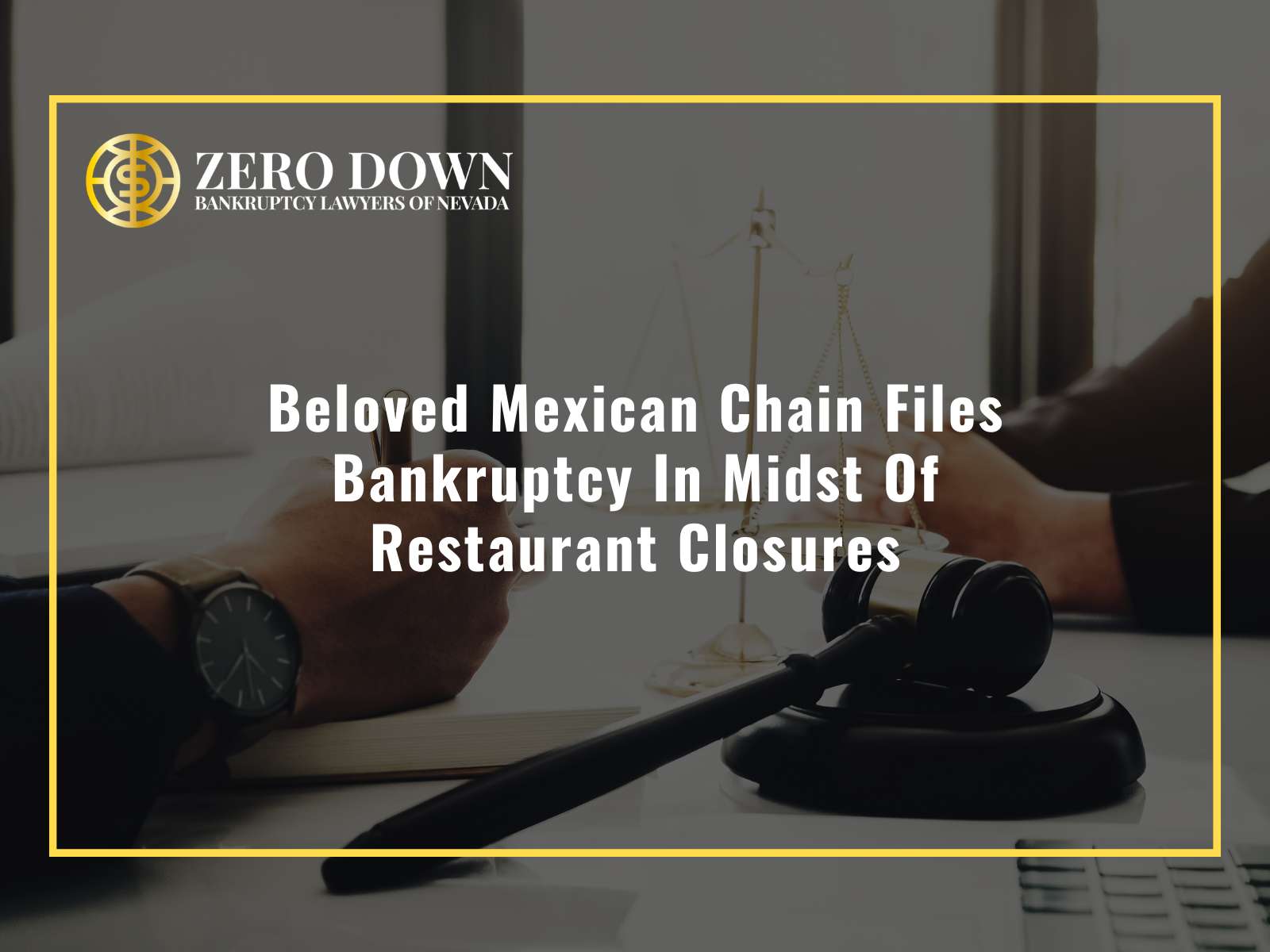Selecting The Best Las Vegas Bankruptcy Filing For Your Financial Situation
Many people who consider bankruptcy are only presented with one option- either chapter 7 or chapter 13. A debtor might not have enough income to complete a chapter 13 bankruptcy, or have too much income to qualify for chapter 7 bankruptcy. There are other factors that could disqualify a debtor from either chapter of bankruptcy or make it an ineffective process despite being eligible to file. Other people might qualify for both forms of bankruptcy and struggle to choose which is best under the circumstances. It is crucial to file the most strategic chapter of bankruptcy for your situation, as you won’t get the chance to discharge debts again for several years. This is just the very first of several decisions you will need to make throughout the bankruptcy process if you want to emerge with a clean slate. If you want to avoid mistakes that can affect your finances and credit for years to come, consider retaining skilled bankruptcy counsel for your filing. Don’t assume that you can’t afford an attorney, or that your case is simple enough that it doesn’t justify retaining bankruptcy counsel. Learn more about the particular issues that may arise in your case by discussing with an experienced Las Vegas bankruptcy professional. Schedule your free consultation today by calling 702-842-0700.
Bankruptcy Waiting Periods
Bankruptcy waiting periods could be an important factor in your decision between chapter 7 and chapter 13 due to eligibility as well as concerns about waiting to qualify for bankruptcy for potential future filings. The goal of bankruptcy is never to have to file again, but it is an inevitable cycle for some bankruptcy debtors. So if a debtor anticipates having to file a second or subsequent case, they may want to take waiting periods into account when deciding which type of bankruptcy to file first. The waiting periods between bankruptcy discharges are as follows:
- First chapter 7, then chapter 13: 4 years
- First chapter 7, then another chapter 7: 8 years
- First chapter 13, then chapter 7: 6 years
- First chapter 13, then another chapter 13: 2 years
Can You Commit To Chapter 13?
Filing for bankruptcy stops creditors from taking certain legal actions against the debtor, but can also stop the debtor from proceeding with separate legal actions. This kind of inconvenience might outweigh the benefits of filing for bankruptcy. A common example of this is when a married couple wants to get divorced, but also wants to clear debts incurred during the marriage together. For some, letting the marriage continue another day is unacceptable. Others might be able to wait out a chapter 7 case, or about three to six months, before taking the plunge with divorce. A chapter 13 bankruptcy lasts 3 or 5 years, which can create issues for anyone with these types of concerns. So if a debtor has the option between both chapters when the length of the case is at issue, chapter 7 might be the preferable method of debt relief. However, this can always vary on a case-by-case basis. Discuss the specifics of your situation with an experienced Las Vegas bankruptcy lawyer, for free, calling 702-842-0700.
Debts Not Cleared By Chapter 7 Bankruptcy
You might qualify for both chapters of bankruptcy, but your debts might not qualify for discharge under both chapters. Chapter 7 bankruptcy only clears unsecured debts with non-priority status and with no other special factors present. For example, debts incurred through fraud are typically non-dischargeable. Debts that can’t be cleared by chapter 7 bankruptcy can usually be paid off in a chapter 13 payment plan.
Let’s say someone is considering filing for bankruptcy. They owe $3,000 on credit cards, $2,000 in medical bills, $10,000 in child support, $4,000 in priority status taxes, and are a few months behind on their mortgage payment. Out of these debts, only credit cards and medical bills are unsecured non-priority debts that can be cleared in chapter 7 bankruptcy. The tax debt might lose priority status and become dischargeable in a few years, but this depends on the specific facts. The child support would not be cleared by a chapter 7 case, and a chapter 7 filing wouldn’t stop a wage garnishment stemming from the child support. It would temporarily put a home foreclosure due to missed mortgage payments on pause, but the lender could resume proceedings once the bankruptcy is discharged if the debtor doesn’t catch up in the meantime. So here, filing for bankruptcy would only clear $5,000 of the $19,000 total debt this person needs to address and doesn’t resolve their mortgage arrearages. If this person were to file for chapter 13 bankruptcy instead, their payment plan would keep the debtor current on their mortgage payments and catch up on back payments, then pay off child support and priority taxes. If there is income left at the end of the payment plan, it will be used to pay off credit cards and medical bills.
Understanding how your debts are treated in each chapter of bankruptcy is a crucial component in deciding which will best suit your needs. Filing for chapter 7 bankruptcy might not make sense when the debtor primarily struggles with secured debts and priority debt which would not be cleared by a chapter 7 filing. Filing for chapter 13 bankruptcy might not make sense if the debtor only has unsecured non-priority debts and qualifies to file for chapter 7 bankruptcy instead. You can review your debts and what will happen to them in each type of bankruptcy during your free consultation with our firm. Let us take you through your potential bankruptcy filing step-by-step so you can feel informed and confident should you decide to file. Schedule your free consultation with our Las Vegas bankruptcy team by calling 702-842-0700.
Do You Have Secondary Home Mortgages?
If you own your home, you might consider it a potential source of financing in an emergency situation. But making payments on a second mortgage can restrain an already-tight budget. If you have a secondary mortgage on your home and are considering bankruptcy, you should be aware that it cannot be cleared by chapter 7 bankruptcy, but there is a possibility it can be discharged in chapter 13 bankruptcy. This opportunity is only available to chapter 13 bankruptcy debtors who owe more on their home than what it is currently worth. For more information about discharging a secondary mortgage through bankruptcy in Las Vegas, call 702-842-0700.
Qualify For Both Bankruptcy Chapters But Don’t Know Which To File? Contact Our Firm For Your Free Consultation Today.
Bankruptcy’s massive benefits can be negated by uninformed decisions throughout the process, starting with whether to file for chapter 7 or chapter 13. Relieve pressure on yourself by retaining a skilled bankruptcy lawyer to make these decisions on your behalf. Our firm offers expert guidance and flexible payment plan options that make filing for bankruptcy more affordable than with our competitors. To see if you qualify for chapter 7 or chapter 13, or both, and for our payment plan options, call 702-842-0700 to schedule your free consultation with our Las Vegas bankruptcy lawyers today.
Zero Down Bankruptcy Lawyers
Phone: (702) 842-0700
Email: info@vegaszerodownbankruptcy.com
Las Vegas Office
5552 Ashley Creek St
Las Vegas, NV 89135
North Las Vegas Office
7251 W Lake Mead Blvd
Las Vegas, NV 89128
Henderson
1489 W Warm Springs Rd #110
Henderson, NV 89014









